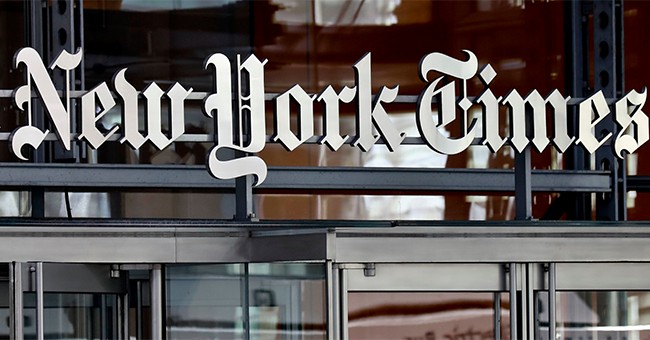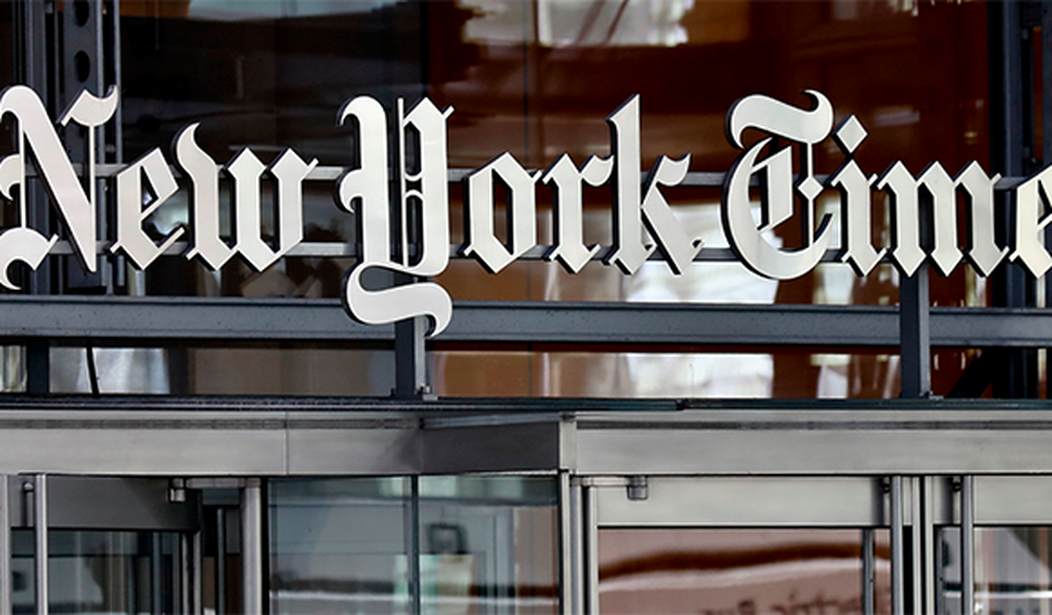
The image of MSNBC’s Ali Velshi telling viewers that the Minneapolis riots were “not generally speaking unruly” as an out-of-control fire raged in the background was just one example of the left’s unwillingness to acknowledge the violence that has swept the U.S. since the death of George Floyd. They’ve covered for the rioters, cheered on the looters, and along the way seem to have forgotten all about social distancing. For, how important is COVID really when we’re fighting the scourge of systemic racism?
MSNBC reporter just now: "I want to be clear on how I characterize this. This is mostly a protest. It is not generally speaking unruly."
The guy is literally standing in front of a burning building in the middle of a riot. pic.twitter.com/IzCV6On4sF
— Caleb Hull (@CalebJHull) May 29, 2020
The mainstream media’s reporting has been blatantly unfair for decades, maybe even forever, but more recently, it has crossed the rubicon and has now reached Alice in Wonderland territory. Reporters no longer even try to hide their bias and in some cases, report outright lies.
Matt Taibbi, a contributing editor at The Rolling Stone, is most definitely a liberal. But he’s aware of the truth and sees the damage done. He addresses it in a new article entitled, “The American Press Is Destroying Itself.”
It feels liberating to say after years of tiptoeing around the fact, but the American left has lost its mind. It’s become a cowardly mob of upper-class social media addicts, Twitter Robespierres who move from discipline to discipline torching reputations and jobs with breathtaking casualness.
The leaders of this new movement are replacing traditional liberal beliefs about tolerance, free inquiry, and even racial harmony with ideas so toxic and unattractive that they eschew debate, moving straight to shaming, threats, and intimidation.
He conveys his message by describing a series of actual internal “newsroom revolts,” situations where colleagues have turned against co-workers because they weren’t being “liberal” enough, they weren’t sticking to the previously agreed-upon narrative. Taibbi writes:
Beginning on Friday, June 5th, a series of controversies rocked the media. By my count, at least eight news organizations dealt with internal uprisings (it was likely more). Most involved groups of reporters and staffers demanding the firing or reprimand of colleagues who’d made politically “problematic” editorial or social media decisions.
He starts with a story involving The Intercept’s Lee Fang, a talented young writer whom Taibbi respects.
Earlier this month, Fang interviewed a young African-American man, a supporter of Black Lives Matter, named Maximum Fr. “Max” told Fang that when he was younger, two of his cousins had been murdered by a black man in the East Oakland neighborhood where they’d all grown up. He said that his aunt had never gotten over their deaths.
Max tells Fang, “I always question, why does a black life matter only when a white man takes it?…Like, if a white man takes my life tonight, it’s going to be national news, but if a black man takes my life, it might not even be spoken of…It’s stuff just like that that I just want in the mix.”
Fang immediately posted this interview to Twitter.
Asked everyone I spoke with today if there was anything they wanted to get off their chest about the movement. Max from Oakland, a supporter of BLM, had a measured critique he wanted to share. pic.twitter.com/07qMQyCdJ9
— Lee Fang (@lhfang) June 4, 2020
I was impressed that this young man not only realized that truth, but was willing to admit it.
In other tweets, Fang “questioned the logic of protesters attacking immigrant-owned businesses with no connection to police brutality at all.” He’d also tweeted that Martin Luther King Jr. opposed violent protest. Akela Lacy, one of Fang’s colleagues, responded, “you know they killed him too right”. Additionally, he wrote that many reporters were “terrified of openly challenging the lefty conventional wisdom around riots.”
Liberals labeled Fang a racist.
Lacy wrote, “Tired of being made to deal continually with my co-worker @lhfang continuing to push black on black crime narratives after being repeatedly asked not to. This isn’t about me and him, it’s about institutional racism and using free speech to couch anti-blackness. I am so f***ing tired…Stop being racist Lee.”
According to Taibbi, Lacy’s tweet went viral. Many reporters from left-leaning media outlets wrote “messages of support for the notion that Fang was a racist.” And Fang was called into the Human Resources office. He writes:
To save his career, Fang had to craft a public apology for “insensitivity to the lived experience of others.” According to one friend of his, it’s been communicated to Fang that his continued employment at The Intercept is contingent upon avoiding comments that may upset colleagues. Lacy to her credit publicly thanked Fang for his statement and expressed willingness to have a conversation; unfortunately, the throng of Intercept co-workers who piled on her initial accusation did not join her in this.
Taibbi reached out to Max who was quite shocked about the whole affair and said, “I couldn’t believe they were coming for the man’s job over something I said. It was not Lee’s opinion. It was my opinion.”
He then tells the story of the forced resignation of James Bennet, the editorial page editor of The New York Times, as a result of approving an anti-protest op-ed written by Sen. Tom Cotton (R-AR). We are all familiar with what happened so I won’t reprise it here. Taibbi points out that so concerned were the Times’ editors about their image over this flap, that they changed a story written about Bennet’s ouster. Originally, it read:
James Bennet, the editorial page editor of The New York Times, has resigned after a controversy over an op-ed by a senator calling for military force against protesters in American cities.
It currently reads::
James Bennet resigned on Sunday from his job as the editorial page editor of The New York Times, days after the newspaper’s opinion section, which he oversaw, published a much-criticized Op-Ed by a United States senator calling for a military response to civic unrest in American cities.
In another story that made the news, The Philadelphia Inquirer fired an editor, Stan Wischowski, who had been with the newspaper for 20 years. The reason? He had approved an article entitled, “Buildings matter, too.” Taibbi writes:
A recent poll found that 73% of Americans described protecting property as “very important,” while an additional 16% considered it “somewhat important.” This means the Philadelphia Inquirer editor was fired for running a headline – “Buildings matter, too” – that the poll said expressed a view held by 89% of the population, including 64% of African-Americans.
(Would I have run the Inquirer headline? No. In the context of the moment, the use of the word “matter” especially sounds like the paper is equating “Black lives” and “buildings,” an odious and indefensible comparison. But why not just make this case in a rebuttal editorial? Make it a teaching moment? How can any editor operate knowing that airing opinions shared by a majority of readers might cost his or her job?)
The main thing accomplished by removing those types of editorials from newspapers — apart from scaring the hell out of editors — is to shield readers from knowledge of what a major segment of American society is thinking.
Taibbi discusses all of the “orgiastic, quasi-religious, and most of all, deeply weird scenes, and the press is too paralyzed to wonder at it.” These would include reports of “white protestors kneeling and praying to blacks for “forgiveness… for years and years of racism,” and white police in Cary, North Carolina, kneeling and washing the feet of Black pastors? What about Nancy Pelosi and Chuck Schumer kneeling while dressed in “African kente cloth scarves”?”
Weren’t liberal journalists even a little intrigued by that behavior?
He notes that liberals have learned they “may freely misreport reality, so long as the political goal is righteous.” I believe they are encouraged to do so. That was certainly the message sent to Lee Fang, Stan Wischowski, and the others Taibbi has mentioned.
It was okay to publish the now-discredited Steele dossier, because Trump is scum. MSNBC could put Michael Avenatti on live TV to air a gang rape allegation without vetting, because who cared about Brett Kavanaugh – except press airing of that wild story ended up being a crucial factor in convincing key swing voter Maine Senator Susan Collins the anti-Kavanaugh campaign was a political hit job (the allegation illustrated, “why the presumption of innocence is so important,” she said). Reporters who were anxious to prevent Kavanaugh’s appointment, in other words, ended up helping it happen through overzealousness.
…
The traditional view of the press was never based on some contrived, mathematical notion of “balance,” i.e. five paragraphs of Republicans for every five paragraphs of Democrats. The ideal instead was that we showed you everything we could see, good and bad, ugly and not, trusting that a better-informed public would make better decisions. This vision of media stressed accuracy, truth, and trust in the reader’s judgment as the routes to positive social change.
For all our infamous failings, journalists once had some toughness to them. We were supposed to be willing to go to jail for sources we might not even like, and fly off to war zones or disaster areas without question when editors asked. It was also once considered a virtue to flout the disapproval of colleagues to fight for stories we believed in (Watergate, for instance).
Today no one with a salary will stand up for colleagues like Lee Fang. Our brave truth-tellers make great shows of shaking fists at our parody president, but not one of them will talk honestly about the fear running through their own newsrooms. People depend on us to tell them what we see, not what we think. What good are we if we’re afraid to do it?
The day that Donald Trump appeared on the national stage as a viable presidential candidate, a switch was flipped. Suddenly, it became acceptable for the mainstream media to not only “tweak” the truth, which they’d always done, but to lie and in some cases to create their own versions of events. The mainstream media has collectively abdicated their responsibility to report the news. Instead, they see their job as supporting the liberal agenda.
What is even more remarkable is they all spout the same talking points. I used to joke that Nancy Pelosi submits the talking points of the day to the DNC which then disseminates them to the major media outlets. Now I think some version of that may actually be true.
The message is communicated to them from on high and they repeat it.
It’s refreshing to see one of their own call them out on it. Taibbi’s piece is very long. But I highly recommend it. It can be viewed here.














Join the conversation as a VIP Member